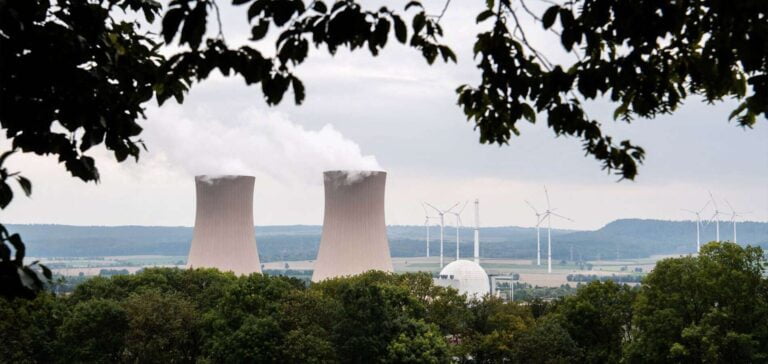Before the end of the year, the European Commission is due to propose a list of energies considered to be climate-friendly, known as the “green taxonomy”.
This classification will open up access to green finance, giving a crucial competitive edge to recognized sectors.
No consensus on nuclear power
Nuclear power is incompatible with the European taxonomy’s principle of “no significant harm”, say the environment ministers from Germany, Austria, Denmark, Luxembourg and Portugal in a joint statement issued on the occasion of COP26.
“We recognize the sovereign right of member states to decide for or against nuclear power within their national energy systems. But we fear that including nuclear energy in the taxonomy would permanently affect its integrity, credibility and therefore its usefulness”, they write.
They believe that this classification could worry certain investors in particular, and that “these market voices need to be heard”.
Don’t hinder sustainable finance
“We urge the European Commission not to jeopardize the courageous path it has taken to make the European Union the leading market for sustainable finance,” they write.
In mid-October, 10 EU countries, led by France, published a statement in support of nuclear power.
Other countries such as Germany, Austria and Luxembourg are opposed, citing the problem of very long-term storage of radioactive waste.
But in mid-October, Berlin seemed to be paving the way for a compromise.
Berlin is due to complete its nuclear phase-out by 2022, following the Fukushima disaster in Japan in 2011.
The other countries in the appeal published on Thursday have no nuclear energy production.






















